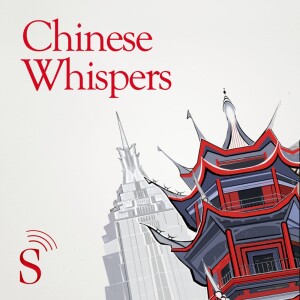
Taiwan goes to the polls in just over a month. This is an election that could have wide repercussions, given the island’s status as a potential flashpoint in the coming years.
The incumbent President, Tsai Ing-wen, is coming to the end of two elected terms, meaning that she cannot run again. Her party’s chosen successor is William Lai – Lai Ching-te – who is the current vice president. For most of this year, he has been facing off opposition from the Kuomintang, the biggest opposition party in Taiwan, and the Taiwan People’s Party, a third party led by the charismatic Ko Wen-je.
Lai remains in the lead with a month to go, but polls show that the KMT is only a few points behind, meaning that an upset is still possible. Since Taiwan became a democracy, it’s the KMT that has been the party calling for closer relations to China, and Tsai and Lai’s DPP that has been more pro-independence and pro-West. Given Beijing has shut off the hotline with Taipei in protest of the DPP since Tsai was first elected in 2016, if Lai wins in January, relations with Beijing are unlikely to get better. But how can the KMT justify closer relations with China, when it seems like the world is in a different place compared to 2015, the last time the KMT held the presidency?
Joining the episode is William Yang, a Taipei-based freelance correspondent, who has written for Voice of America, Deutsche Welle, the Guardian and the Times.
The incumbent President, Tsai Ing-wen, is coming to the end of two elected terms, meaning that she cannot run again. Her party’s chosen successor is William Lai – Lai Ching-te – who is the current vice president. For most of this year, he has been facing off opposition from the Kuomintang, the biggest opposition party in Taiwan, and the Taiwan People’s Party, a third party led by the charismatic Ko Wen-je.
Lai remains in the lead with a month to go, but polls show that the KMT is only a few points behind, meaning that an upset is still possible. Since Taiwan became a democracy, it’s the KMT that has been the party calling for closer relations to China, and Tsai and Lai’s DPP that has been more pro-independence and pro-West. Given Beijing has shut off the hotline with Taipei in protest of the DPP since Tsai was first elected in 2016, if Lai wins in January, relations with Beijing are unlikely to get better. But how can the KMT justify closer relations with China, when it seems like the world is in a different place compared to 2015, the last time the KMT held the presidency?
Joining the episode is William Yang, a Taipei-based freelance correspondent, who has written for Voice of America, Deutsche Welle, the Guardian and the Times.
More Episodes
China's 'snowflake generation'
 2021-07-12
2021-07-12
 2021-07-12
2021-07-12
Has economic engagement with China failed?
 2021-06-14
2021-06-14
 2021-06-14
2021-06-14
The fightback against facial recognition
 2021-05-17
2021-05-17
 2021-05-17
2021-05-17
Why does China care about Taiwan?
 2021-04-05
2021-04-05
 2021-04-05
2021-04-05
Is China 'eating America's lunch'?
 2021-02-22
2021-02-22
 2021-02-22
2021-02-22
How Hong Kong became what it is today
 2021-02-08
2021-02-08
 2021-02-08
2021-02-08
The Chinese backlash against Big Tech
 2021-01-25
2021-01-25
 2021-01-25
2021-01-25
Is China turning away from the world?
 2020-12-21
2020-12-21
 2020-12-21
2020-12-21
China's long history of student protests
 2020-12-07
2020-12-07
 2020-12-07
2020-12-07
Has China really beaten Covid?
 2020-11-23
2020-11-23
 2020-11-23
2020-11-23
012345678910111213141516171819
Create your
podcast in
minutes
- Full-featured podcast site
- Unlimited storage and bandwidth
- Comprehensive podcast stats
- Distribute to Apple Podcasts, Spotify, and more
- Make money with your podcast
It is Free
- Privacy Policy
- Cookie Policy
- Terms of Use
- Consent Preferences
- Copyright © 2015-2024 Podbean.com






